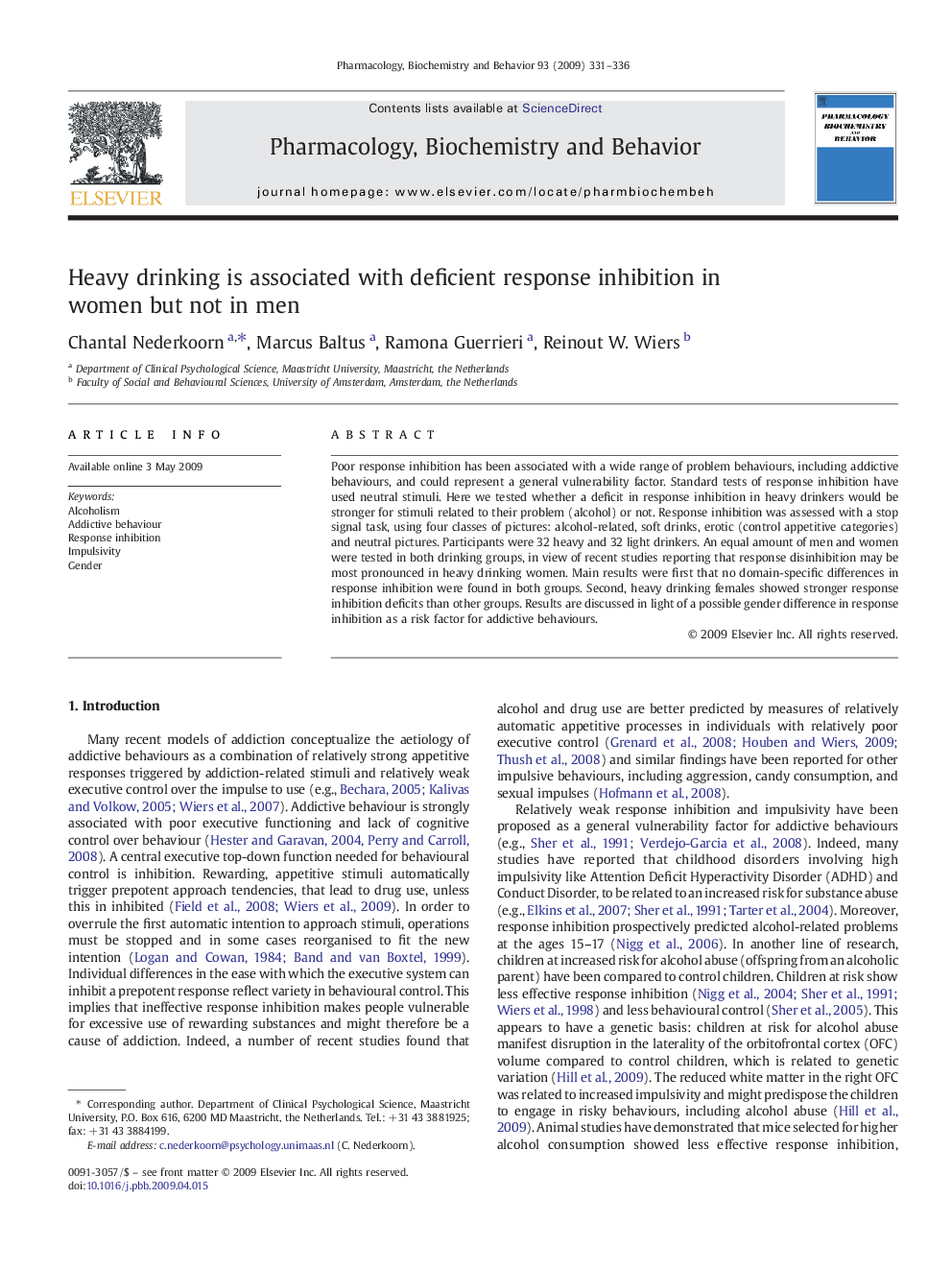| Article ID | Journal | Published Year | Pages | File Type |
|---|---|---|---|---|
| 2013797 | Pharmacology Biochemistry and Behavior | 2009 | 6 Pages |
Poor response inhibition has been associated with a wide range of problem behaviours, including addictive behaviours, and could represent a general vulnerability factor. Standard tests of response inhibition have used neutral stimuli. Here we tested whether a deficit in response inhibition in heavy drinkers would be stronger for stimuli related to their problem (alcohol) or not. Response inhibition was assessed with a stop signal task, using four classes of pictures: alcohol-related, soft drinks, erotic (control appetitive categories) and neutral pictures. Participants were 32 heavy and 32 light drinkers. An equal amount of men and women were tested in both drinking groups, in view of recent studies reporting that response disinhibition may be most pronounced in heavy drinking women. Main results were first that no domain-specific differences in response inhibition were found in both groups. Second, heavy drinking females showed stronger response inhibition deficits than other groups. Results are discussed in light of a possible gender difference in response inhibition as a risk factor for addictive behaviours.
